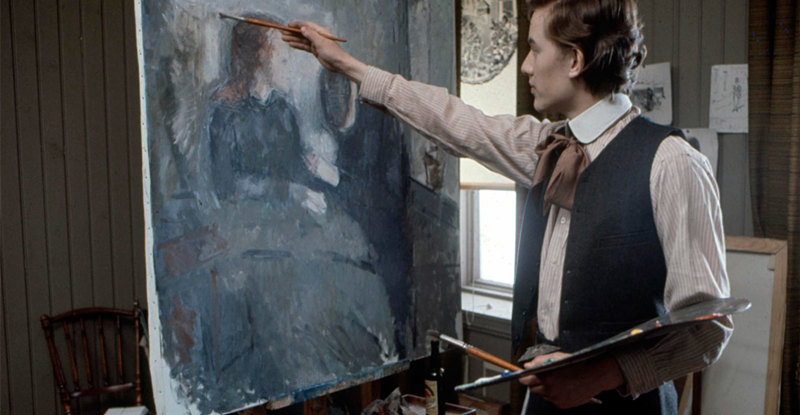Sometimes you can feel a movie teetering on the brink, balancing on that mysterious knife-edge of story and character, just one small tonal shift away from a different, and usually lesser, film.
“Touch” is just such a film. In director Minh Duc Nguyen’s debut feature, we explore the idea of physical contact as healing, as communication, as connection. Tam (Porter Lynn) is a young Vietnamese-American woman, a new manicurist at a nail spa. In her off-hours, she cares for her paraplegic father, confined to a wheelchair from the year-ago car accident that killed Tam’s mother.
Into the shop walks Brendan (John Ruby), a shy mechanic who is desperately trying to save his marriage and connect with his distant wife Sandie (Melinda Bennett), who refuses to allow him to touch her because of the dirt on his hands from his work. He finds himself seeking Tam’s help in reaching her, and a relationship slowly builds as Tam and Brendan grow to trust each other and reveal some of themselves.
That different, lesser film might have turned this set-up into a predictable mawkish romance, with Tam and Brendan finding the happy ending with each other, and Sandie getting the comeuppance that a cold bitch deserves.
Fortunately, “Touch” is not that film, and Nguyen has a deeper, richer story to tell, where characters speak with an emotional logic that makes sense, and act in ways that are more than conveniences to the plot. There is even a dream sequence with a sly sense of humor, where Nguyen toys with the audience’s presumptions about the plot, and rejects the easy way out those presumptions would call for.
The film is gracefully edited and shot, with an unforced rhythm of closeups, cuts and dissolves, especially in the understated, sensual silences that are this film’s real strength. There is an unapologetic simplicity that feels true, and keeps the emotional stakes clear even when the script is freighted with some clumsy bits of exposition that could have used a little more poetry. The lead performances are natural and relaxed, grounded in that same simplicity and directness of manner.
Nguyen’s directing background is in TV, and there are moments that feel lifted, badly, from boilerplate situation comedy, interrupting the film’s intimate cadence. There are brief but pained comic relief sequences, where the other manicurists banter about their sexual lives and misdeeds, and these clank and grind, laboring where the rest of the film feels rather effortless.
“Touch” is about the space that is filled by physical contact, sexual and otherwise. The space of rejection, of childhood pains that we carry into adulthood, of mistakes and regrets. The film has an uplifting faith in the power of contact to heal these wounds, and expresses that faith in simple terms that are low-key and genuine, if not always artful.
Video:
“Touch” is presented in a widescreen 1.33:1 ratio. The picture quality is very good, with few noticeable technical problems. There are options for English, French and Vietnamese subtitles.
Audio:
The audio track has options for either 5.1 Surround or Stereo. The audio set-up menu is under the “Extras” tab on the main menu. Sound quality is uniform and satisfying.
Extras:
- Theatrical trailer
- A deleted scene, interesting both for its content and for suppositions about why it was cut from the finished film.
- An outtakes reel, much of which consists of bloopers from the Vietnamese-speaking cast members. So if you speak Vietnamese, this might be a hoot. Let me know, since I’m ignorant in that field.
Parting thoughts:
A tale told simply and gently, “Touch” is a rewarding film about the power of contact and connection, stumbling only occasionally on the way.


